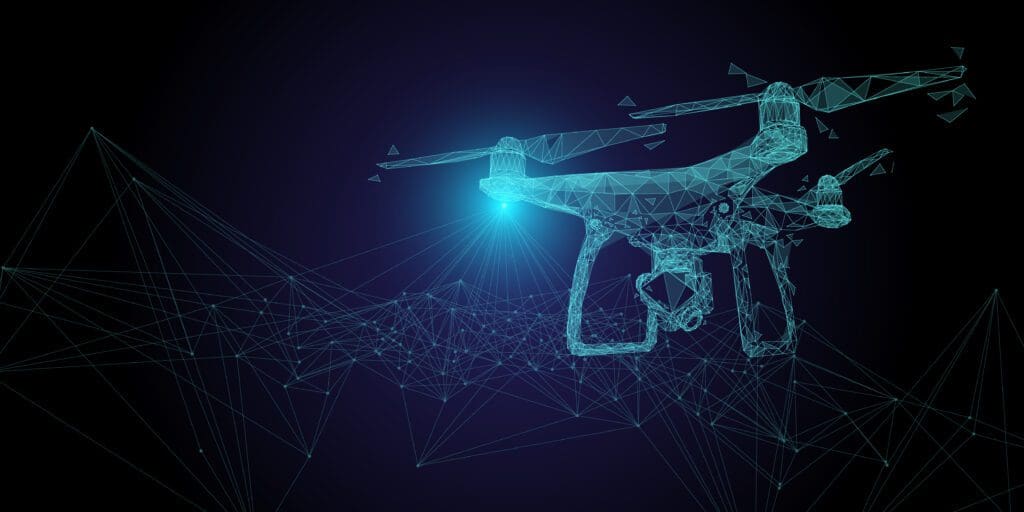Biopolitics, necropolitics and AI
In the ever-evolving landscape of artificial intelligence (AI), the intersection with various sociopolitical concepts has become increasingly apparent. One such intersection that demands attention is the connection between necropolitics and AI. As AI technologies advance, the ethical implications of their deployment in various fields bring to light concerns related to necropolitical dimensions. This blog post delves into the intricate relationship between necropolitics and AI. It explores the ethical challenges and potential consequences that arise.
However, before embarking on this exploration, it is essential to contextualize the concept of "necropolitics". We must understand its antecedents within the broader discourse of political theory and societal analysis. Let us set off on an adventure to examine the historical roots and conceptual underpinnings that precede the notion of necropolitics and elucidate its relevance to contemporary discussions surrounding AI ethics and governance.
What is biopolitics?
Biopolitics1, as introduced by Michel Foucault, centers on the management and regulation of populations through techniques such as surveillance, discipline, and normalization. It encompasses strategies aimed at enhancing life and health within societies. Biopolitics operates through institutions. Healthcare, education, and welfare systems focus on fostering life and managing populations. Their overall agenda is to ensure their productivity and well-being within the societal structure.
As opposed to biopolitics, biopower refers more specifically to the techniques and technologies through which power is exercised over biological life. In essence, while biopolitics encompasses the broader strategies and ideologies related to the governance of life, biopower zooms in on the specific methods and technologies of power that enable such governance to be carried out effectively. Together, these concepts provide insights into how power operates in modern societies to shape and regulate life itself. (For a broader differentiation between biopolitics and biopower, click here.)
What is necropolitics?
On the other hand, necropolitics2, a concept developed by Achille Mbembe, shifts the focus to governance and control over death and mortality within societies. Necropolitics examines how power structures dictate not only who lives and thrives but also who dies and how death is administered and utilized as a tool of power. It involves the deliberate infliction of death and the management of mortality. This is often executed through violent means to assert dominance, control populations, and enforce social hierarchies. Necropolitics operates through practices such as genocide, warfare, and state-sponsored violence. It's focus is on the regulation and utilization of death as a mechanism of power.
[C]ontemporary forms of subjugating life to the power of death (necropolitics) are deeply reconfiguring the relations between resistance, sacrifice, and terror. (…) [T]he notion of biopower is insufficient to account for contemporary forms of the subjugation of life to the power of death. (Mbembe 2019, 92)
AI surveillance and biopolitics
In contemporary society, the intersection of AI surveillance and biopolitics has sparked debates surrounding privacy, autonomy, and societal control. The advent of sophisticated AI technologies has revolutionized the landscape of surveillance. These technologies enable the collection, analysis, and utilization of vast amounts of data for various purposes. At the same time, these advancements have raised concerns about the implications for individual freedoms and collective governance. The pervasive nature of constant monitoring and scrutiny of individuals' activities, both online and offline, erodes notions of privacy and freedom of expression, fostering a climate of self-censorship and conformity.
We can say without a doubt that AI surveillance echoes the principles of Foucauldian biopolitics. In our digital age, AI surveillance enables the monitoring and management of populations at unprecedented scales. Through advanced algorithms and machine learning techniques, AI systems can extract insights, patterns, and correlations from the collected data. Thereby, they can facilitate the profiling and classification of individuals based on their characteristics and behaviors. The integration of AI surveillance into governmental policies, law enforcement practices, and corporate strategies definitely reflects broader efforts to regulate and control populations.
Necropolitics in a digital age
Achille Mbembe's concept of necropolitics originally emerged in the context of post-colonial Africa. He examined how they use power there through the ability to dictate who lives and who dies. In the age of AI, this concept takes on new dimensions as algorithms and automated systems increasingly influence life-and-death decisions. From medical triage systems to healthcare algorithms, the deployment of AI raises questions about how power is wielded in determining outcomes, sometimes with life-altering consequences.
In the digital age, the impact of necropolitics becomes more nuanced as AI systems permeate various aspects of our lives. The inherent power dynamics involved in deciding the fate of individuals are amplified when algorithms influence outcomes across diverse domains. The expansion of AI applications into predictive policing, for example, deepens the connection between technology and the politics of life and death. This underscores the need for a thorough examination of the ethical implications.
Biases and discrimination in AI
One of the primary ethical concerns in the realm of AI is the presence of biases and discrimination embedded in algorithms. Necropolitics manifests when AI systems disproportionately impact certain groups, reinforcing existing societal inequalities. For example, biased facial recognition algorithms may lead to wrongful arrests or unfair targeting of specific demographics. This can amplify the inequities that already exist in society.
The ethical considerations surrounding biases in AI extend beyond mere technical challenges. The perpetuation of societal disparities through algorithmic decision-making raises profound questions about justice and fairness. As AI systems influence critical aspects of our lives, the unintended consequences of biased algorithms underscore the urgency of addressing these issues to prevent the entrenchment of discriminatory practices.
Autonomous weapons: necropolitics and AI in action
The development of autonomous weapons systems introduces another layer to the intersection of necropolitics and AI. The ability of machines to make life-or-death decisions on the battlefield raises profound ethical questions. Who holds the power to deploy these weapons, and how are decisions made regarding the targets? The potential for AI to be used in warfare brings forth concerns about unchecked power and the consequences of delegating life-and-death decisions to non-human entities.

As technology advances, the ethical implications of autonomous weapons demand careful consideration. The prospect of machines making decisions with lethal consequences requires a reevaluation of traditional notions of accountability and responsibility. The intersection of necropolitics and AI in the realm of autonomous weapons necessitates a comprehensive ethical framework. This framework should acknowledge the gravity of decisions made by automated systems in conflict situations.
Healthcare and necropolitical implications
In the realm of healthcare, AI plays a significant role in diagnostics, treatment plans, and resource allocation. However, the use of AI in healthcare raises concerns about equitable access to medical resources and potential discrimination in treatment recommendations. The deployment of AI in healthcare systems necessitates careful consideration of the ethical dimensions. Algorithms must make decisions that prioritize human life without reinforcing existing biases.
Healthcare, as a domain deeply intertwined with life and death, presents unique challenges in the context of necropolitics and AI. The reliance on algorithms for medical decision-making requires a thorough examination of how these systems impact marginalized communities. Ensuring that AI applications in healthcare promote inclusivity and ethical treatment practices is paramount to preventing existing healthcare disparities.
Ethical frameworks for AI development at the intersection of necropolitics and AI
As may be clear from what has been said so far, addressing the necropolitical dimensions of AI necessitates the establishment of and adherence to robust ethical frameworks. Foundational to this endeavor are the principles of transparency, accountability, and inclusivity. These serve to mitigate the potential for biased outcomes. Interdisciplinary collaboration involving ethicists, policymakers, and technologists is essential to navigating this intricate ethical landscape.
While ethicists contribute their expertise in moral reasoning and ethical theory, helping to identify and evaluate the ethical implications of AI systems, policymakers play a pivotal role in shaping the regulatory frameworks that govern AI deployment and usage. Technologists bring essential technical knowledge and skills to the collaborative effort. Their expertise in AI development enables them to implement ethical principles into the design and deployment of AI systems. This collaborative approach promotes holistic solutions that prioritize ethical considerations while advancing innovation in AI development.
Conclusion
In navigating the intricate intersections of biopolitics, necropolitics, and the rapid advancements in AI, we confront profound ethical considerations that resonate deeply in our digital age. From the proliferation of surveillance technologies to the insidious biases embedded within AI systems, our journey into the future demands a conscientious reevaluation of the ethical frameworks guiding our technological progress.
In charting a course forward, we must prioritize the development of ethical guidelines that safeguard human dignity and uphold principles of justice and equity. Ultimately, the ethical exploration of AI within the context of necropolitics compels us to confront the profound responsibilities inherent in our technological endeavors. Only through a collective commitment to ethical reflection and action can we harness the transformative potential of AI to create a world that truly reflects our shared values and aspirations.

